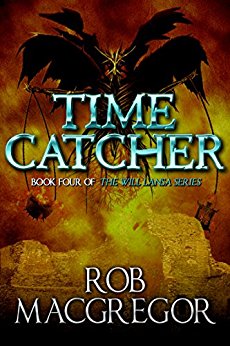Lionel Shriver
It disturbs us that those in charge of an Australian writers festival in Brisbane would censor Lionel Shriver, their keynote speaker, and disavow her comments and even removed links to her speech from from their website. What did she say that was so offensive? She defended her right and that of other writers to speak in the voice of someone from another race or culture.
The justification for the negative reaction is known as ‘appropriation,’ a term that the New York Times defines as the objections by members of minority groups to the use of their customs or culture (or even characters of their ethnicity) by writers or other artists who do not belong to those groups. Shriver is guilty, so are we to some extent.
Let’s put it in perspective. Historically, white writers focused on white characters, except for an occasional maid, servant or slave who served as background and were usually portrayed in stereotypical terms. Hence, the root of appropriation. Look at the movies and early television series from before the mid-1960s, and you’ll see such blatant portrayals of minorities by script writers. Then in 1967, Guess Who’s Coming to Dinner was released, a movie about inter-racial marriage, presenting it in a positive light. Just six months earlier such marriages had been illegal in 17 states, and the subject remained extremely controversial.
We saw much of the story through the eyes of the black man, portrayed by Sidney Poitier. The script was written by a white man and directed by another one. Was that appropriation? Ironically, minorities continue to point out that they are under represented in Hollywood by scriptwriters who write too white. If Hollywood and the Screenwriters Guild, in particular, adopted the anti-appropriation concerns as a rule, there would be even fewer roles.
I understand the concern by blacks and other minorities that white writers might still invoke stereotypes of minority groups and not fully and accurately represent the race or culture of such characters. That would be bad writing. They also think that it’s a written form of ‘black face’ – white actors portraying blacks from the early days of film. In other words, writers from minority races and cultures should be the ones writing these stories. And some do, Walter Moseley has written more than 50 novels, many featuring Easy Rollins, a black private eye.
Having written a mystery series set on the Hopi Indian reservation, I’m well aware of these issues. Here’s how I handled it. I recognized at the outset that my experience has been nothing like that of a Hopi Indian youth. To create a believable character, I chose to make Will Lansa of mixed race, a father who was the first Native American chief of police on the reservation and a white mother, the heir to a silver mining family in Aspen, Colorado who worked several years as a social worker on the reservation. After his parents’ divorce, Will grew up in Aspen. Even though he spent time with his father, including a summer vacation and his senior year of high school at Hopi High, he always felt like an outsider -half Hopi from a white culture. That perspective worked for me.
In my fourth book in the series, TIME CATCHER, Will is a 27-year-old anthropology prof who returns to the rez at the request of his grandmother where he embarks on the adventure of his life. That book just came out as an e-book. You can find a more detailed summary here.
Another novel I wrote took place in 1627 and involved Puritans shipwrecked on the coast of South American, who escape Indian attacks by fleeing in their lifeboats along the Orinoco into the interior. One of the major characters in The Lost Tribe is an Indian shaman, whose life becomes entangled with the Puritans. So I wrote about a white culture, Puritans, that is foreign to me, and a Native American perspective. Appropriation in both cases, I guess.
Many years ago, when Trish and I were first starting out as writers, we discussed the issue of writing from the perspective of another race or culture. As Trish put it, we are all humans, all part of the same larger family, all have similar emotional lives and are interconnected through archetypes that transcend race and culture. That connection is what we try our best to explore in our stories.










Writers have used this style for centuries. Why is it a problem now?
Beats me!
It was because of an African journalist named Yassmin Abdel-Magied who walked out before even listening to all of Lionel Shriver’s speech.
Here is in her own words on what offended her about Lionel’s speech…which sounds like a pile of BS to me –
https://medium.com/@yassmin_a/i-walked-out-of-the-brisbane-writers-festival-keynote-address-this-is-why-78a4d8c4b7ac#.iy7hkpcwl
I met Lionel a few years back in Byron Bay and got her to sign a copy of ‘We Need to Talk About Kevin’, which I blogged about here –
https://brizdazz.blogspot.com.au/2014/03/we-need-to-talk-about-kevin.html
Lionel is fine in my books.
I think some people just want to be in the spotlight for less legitimate reasons than what they are complaining about.
Here is what another journalist wrote about Yassmin Abdel-Magied walkout –
https://www.afr.com/opinion/columnists/lionel-shriver-right-protesters-wrong-at-brisbane-writers-festival-20160915-grh2tn
Thanks for the links!
Just like the politically correctness that has permeated our culture. It’s off limits to talk about anything anymore without worrying about the politically correct police. It stifles conversation and problem solving.
You nailed it, Nancy.
Regardless of the name you give this, it’s a form of censorship. And who makes the decision that it’s inappropriate?
You would think that in the second decade of the 21st century, this wouldn’t be an issue. Go figure.